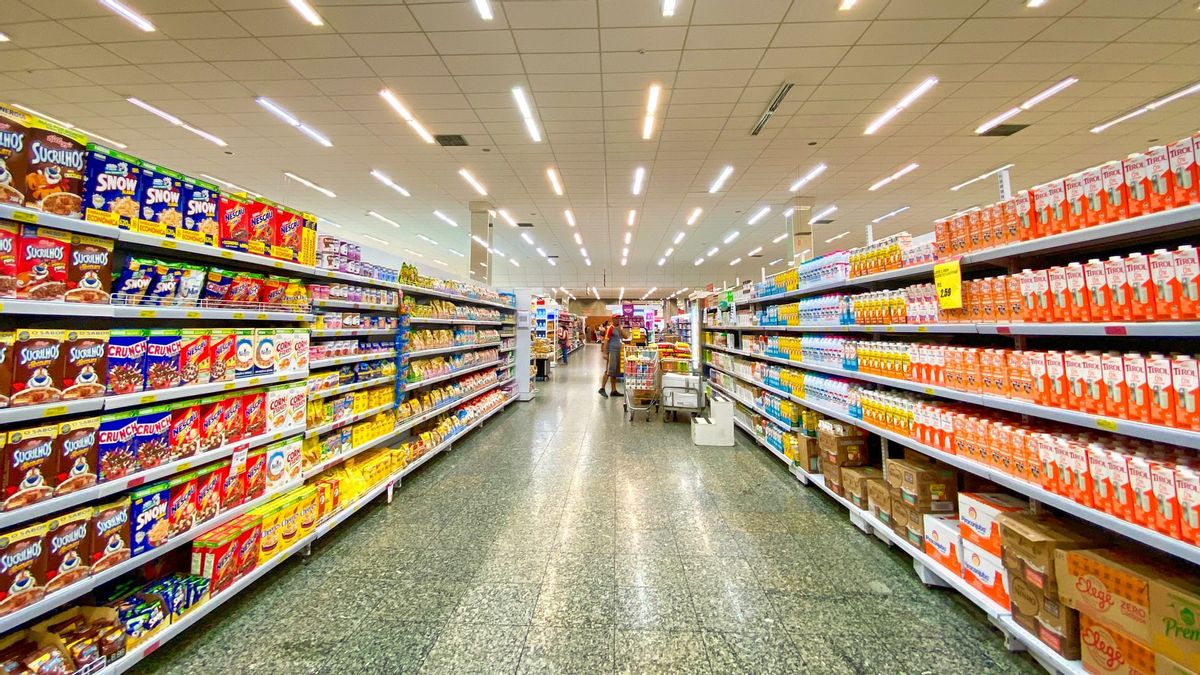JAKARTA - During the COVID-19 pandemic, many large retailers or hypermarkets have collapsed. One of the reasons is the limitation of community activities. These restrictions make large retailers less competitive with minimarkets.
To note, the retail business in the fast moving consumer goods (FMCG) sector is divided into three types, namely hypermarkets, supermarkets, and minimarkets. The difference lies in the format, size, and facilities provided.
General Chairperson of the Indonesian Shopping Center Management Association (APPBI) Alphonzus Widjaja said that there was a trend of changing people's behavior in shopping during the COVID-19 pandemic and the imposition of restrictions on community activities (PPKM).
"An example of why during this PPKM hypermarkets were affected. Even though hypermarkets were included in the category of basic needs, main needs. But recently we have heard that some have closed. This is because there is a changing trend in people's spending patterns," he said, in a virtual discussion , quoted Wednesday, July 28.
People, continued Alphonzus, currently prefer shopping at minimarkets rather than having to go to supermarkets or hypermarkets. The reason is, the products sold in minimarkets are now more diverse and there are many promo offers.
The situation has been made worse by the pandemic. Alphonzus said, people were afraid to leave their homes, shopping centers were closed, and activities in public spaces were restricted. As a result, hypermarket business opportunities are increasingly closed. People prefer shopping at minimarkets that are close to their homes.
"In the past, people used to shop for weekly and even monthly shopping, where? In hypermarkets because there was a lot of shopping. During PPKM and PSBB, mobility was limited, they couldn't move too far. as necessary because purchasing power has decreased. That is why hypermarkets are ultimately affected," he said.
Therefore, said Alphonzus, shopping centers should be built near housing estates, not in the center of Jakarta, which is far from residential areas. That way, the hypermarket inside the shopping center will be successful.
"The shopping center that we are looking for is one that is close to housing that is close to his house and this has happened, which I mentioned earlier, for example, the closing of a hypermarket. In my opinion, the shopping center should be built near housing," he said.
On the same occasion, Head of Commercial Marketing for NWP Retail, Teges Prita Soraya, said that as a retail shopping center platform, his party built shopping centers focused outside Java.
Furthermore, Teges said that the existence of a shopping center in the area will add value to the city. According to him, usually after his party has a plan for the development of a mall in an area, the land around the mall's location will also be built.
"The local developers will immediately build small clusters so that the price of their land goes up. Then every time we build a mall, later along the road to the mall, suddenly there are shop houses, which at the time we started the groundbreaking there were no there is a shop," he said.
The English, Chinese, Japanese, Arabic, and French versions are automatically generated by the AI. So there may still be inaccuracies in translating, please always see Indonesian as our main language. (system supported by DigitalSiber.id)








